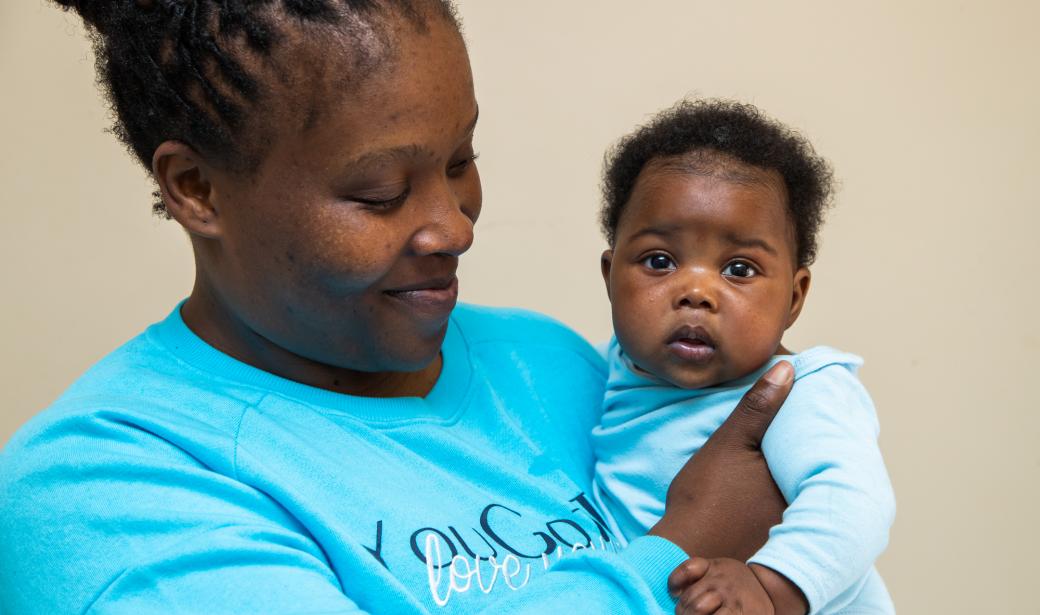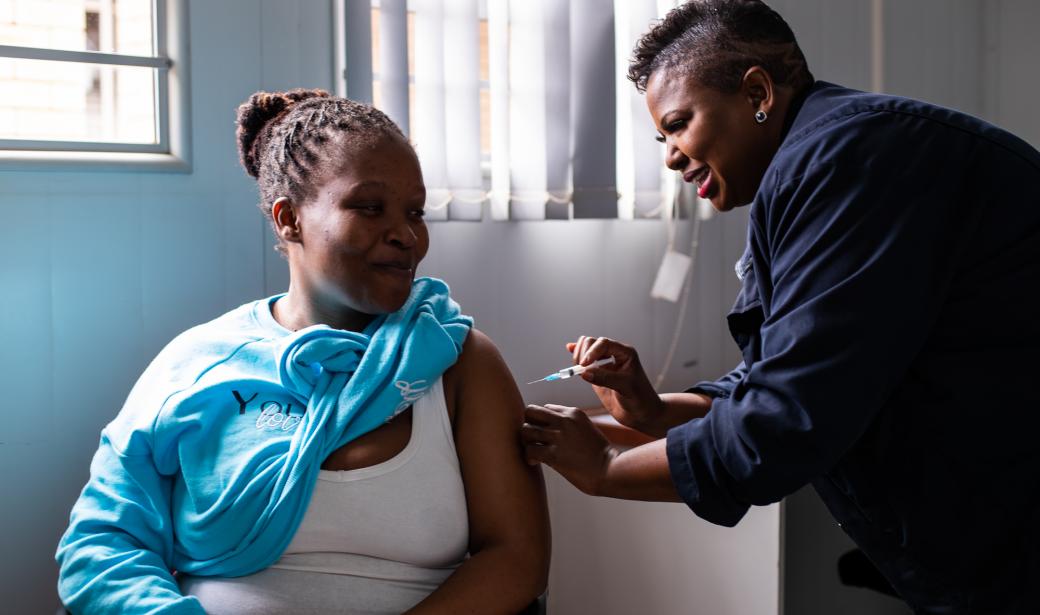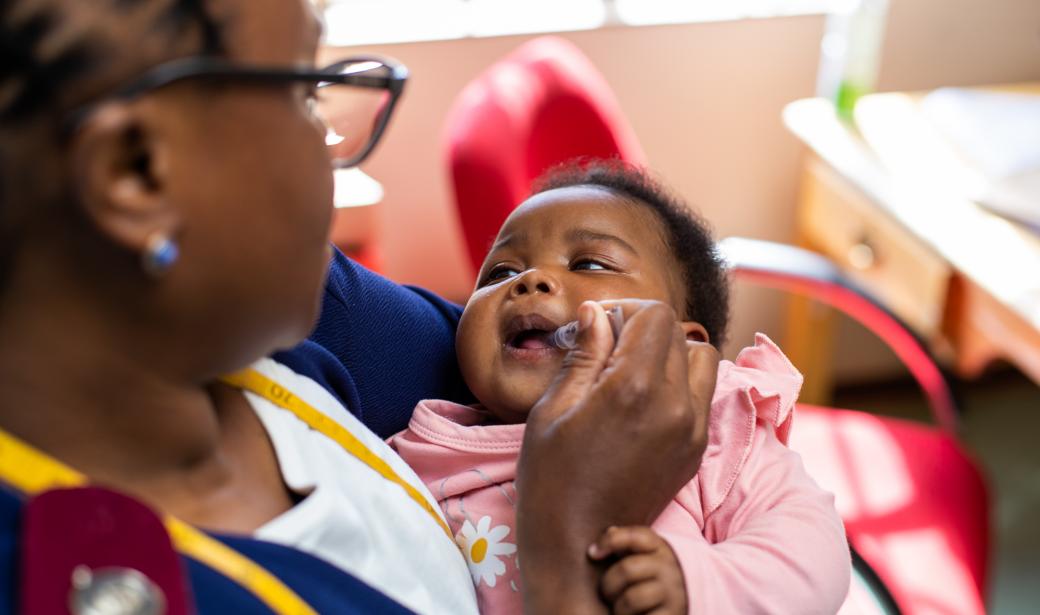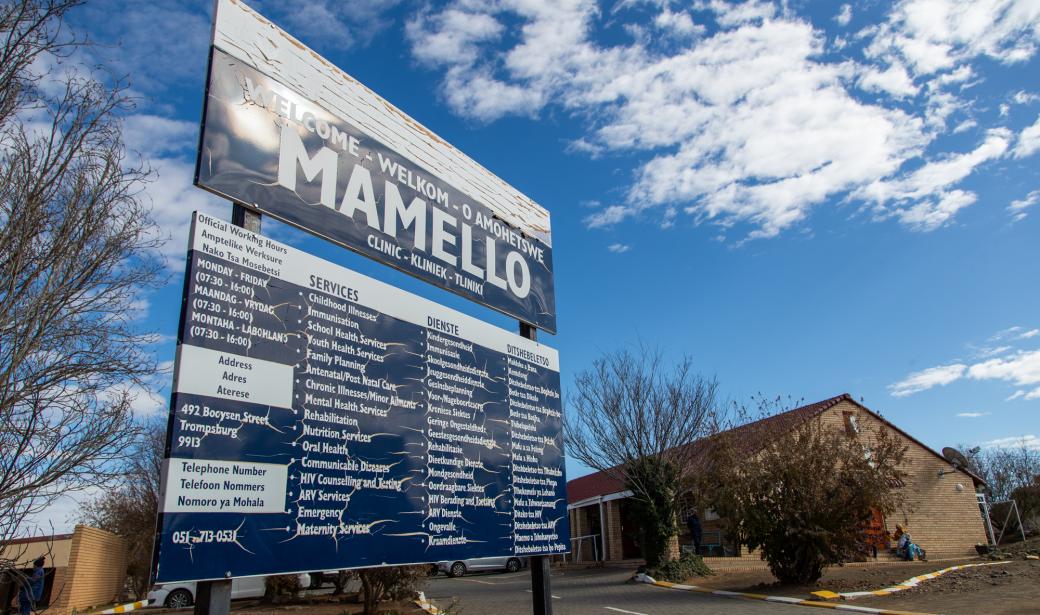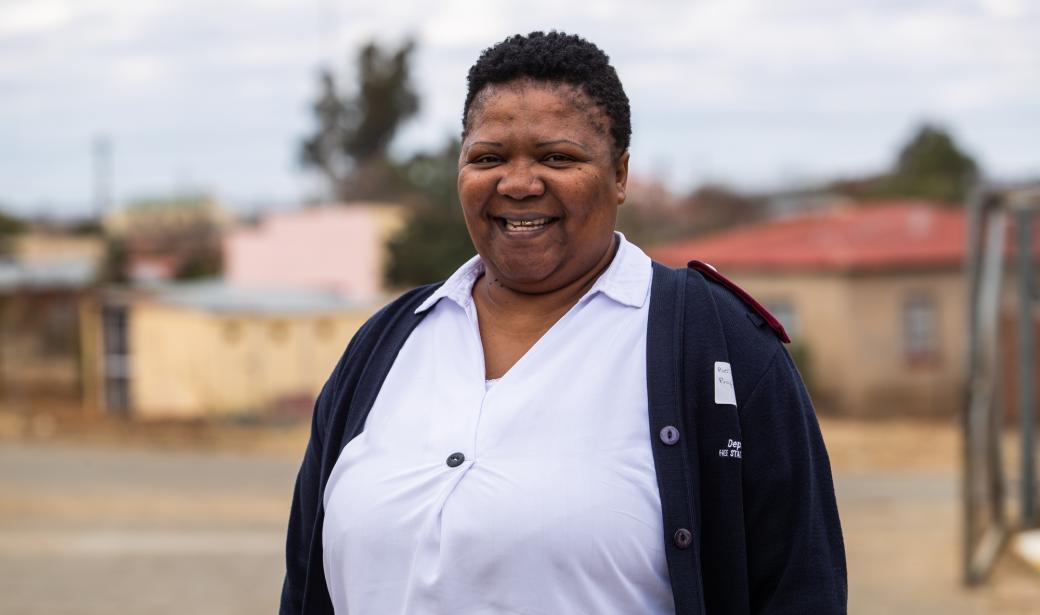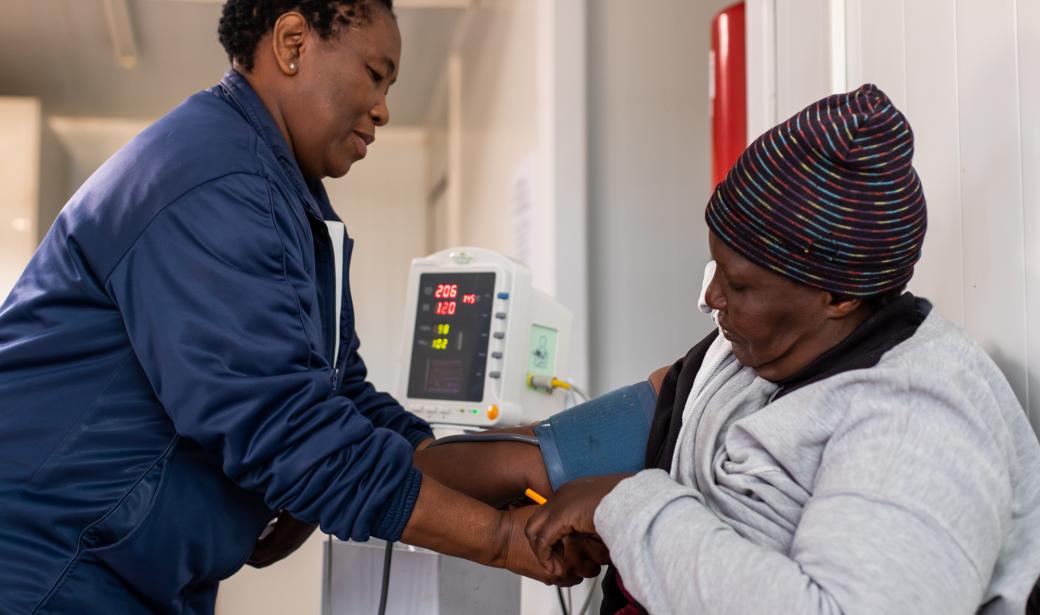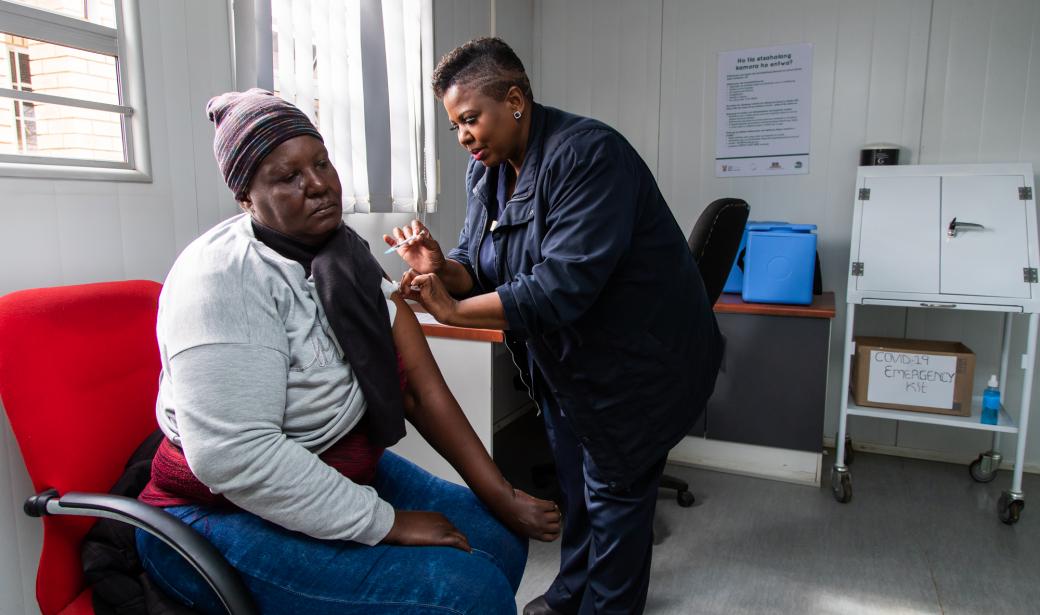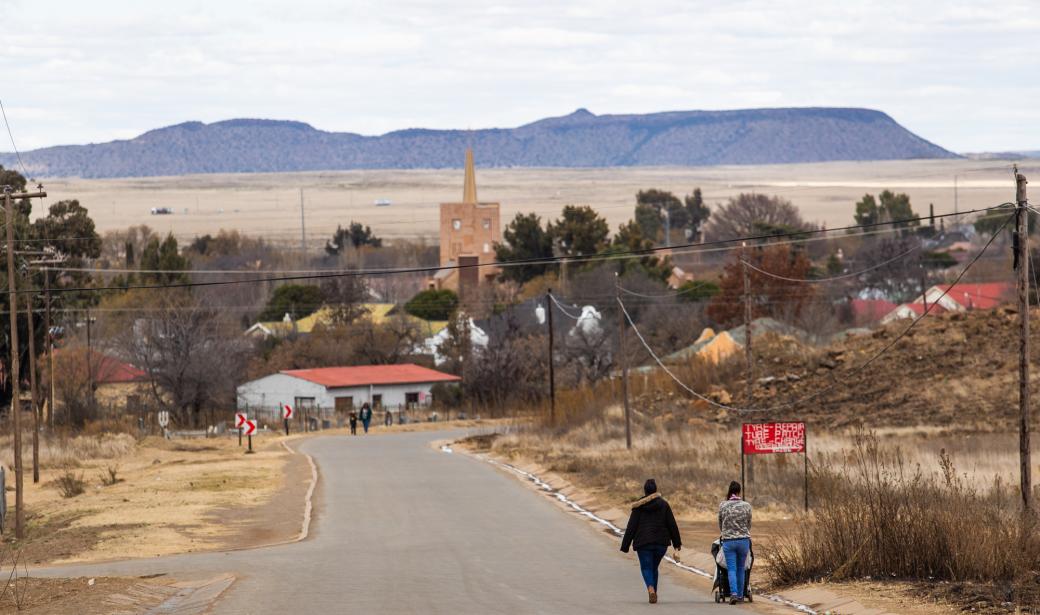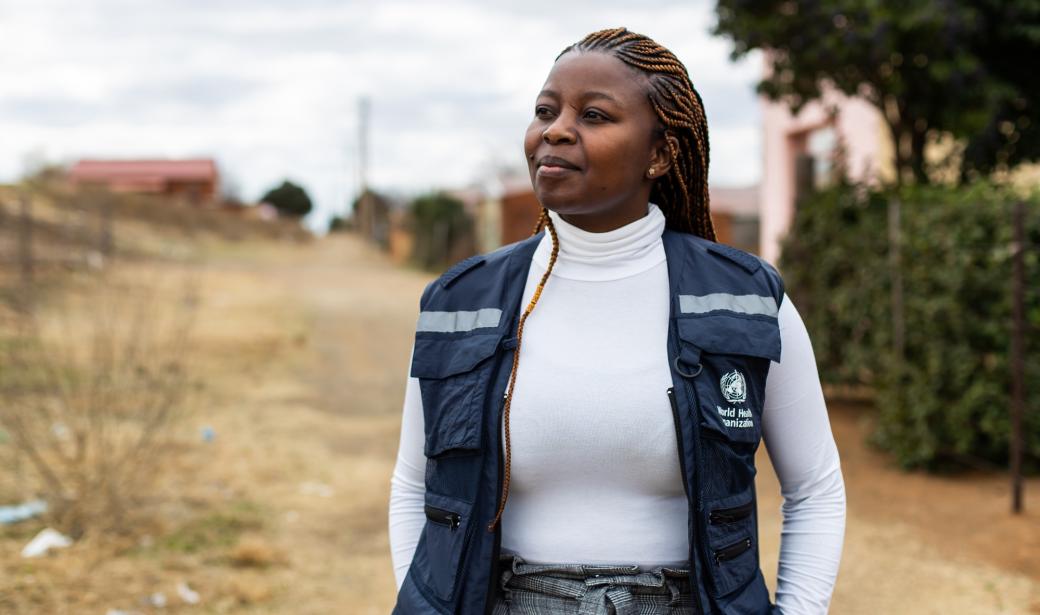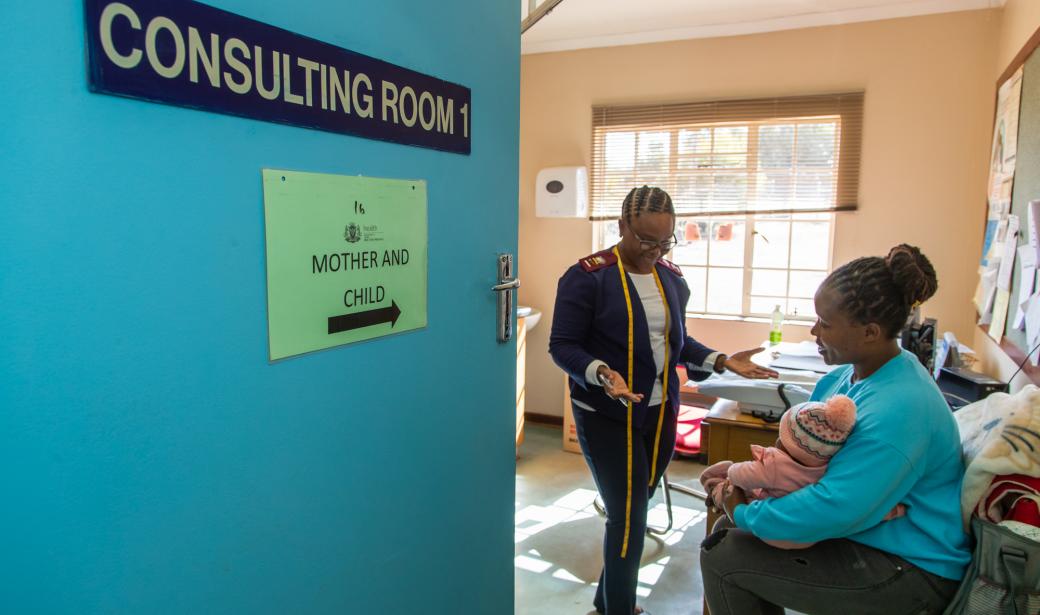Xhariep ‒ Vuyelwa Mnyameni fell ill with COVID-19 in June 2020. She remembers vividly how sick she was. “I just hung in there for the kids,” she says, recalling how she had to leave home to quarantine at one of Free State Province’s official sites for 15 days, far away from her family.
When the COVID-19 vaccine became available nearly a year later, she was among the first to get it. “I said ‘you know what, the feeling I had last year, I don’t want to be there again’,” she says. “For my body to be well and fight back – I didn’t even waste time in getting it. I was just happy it was there so I could take it.”
She has completed her primary vaccination series and is visiting Mamello primary health care clinic to get her booster dose, as well as her three-month-old baby girl’s scheduled childhood immunization.
“It’s really important for me to keep her protected against childhood diseases,” says Mnyameni.
The mother of two is on maternity leave and will return to her job as an administrative clerk in the district’s main hospital.
“The challenge here is that people are poor so there’s not much you can do about that, but by at least taking care of their health –that is something.”
“I am here for my routine check-up" she says. This means that in one visit she was able to collect her HIV treatment, medication for high blood pressure and get an injectable contraceptive. “And I also came to be vaccinated for COVID-19,” she adds.
It also helps district officials to identify cluster that are falling behind with COVID-19 vaccination. While over 60% of the district’s total population, and 78% of its people over the age of 60 have received their primary vaccination series, pockets of “resistance” remain, says Zisiwe Mahlati, the WHO district epidemiologist in Xhariep.
“My first job was to analyse data from all the different data systems. We started by interpreting data and standardizing reports to help people on the ground to make sense of it,” she says. Once an outbreak was identified, staff were deployed to a cluster to step up testing and contact tracing.
She has now transferred these skills to vaccination, using the EVDS as a source of data.
“I can see the areas that are lacking in vaccination coverage. So, we are going to embark on a survey in one local area that is underperforming in terms of reaching the targets; and understand why they are not seeing the importance of vaccinating,” she says.
Mahlati is also thinking about the future. “These data systems we have developed will be needed going forward with new and unexpected viruses,” she says.
Communication Officer
WHO Regional Office for Africa
Email: ridgardn [at] who.int (ridgardn[at]who[dot]int)
Tel: +254 11 289 0666
Media Relations Officer
WHO Regional Office for Africa
Email: dalalm [at] who.int (dalalm[at]who[dot]int)
Tel: +254 703 245 761 (WhatsApp)



